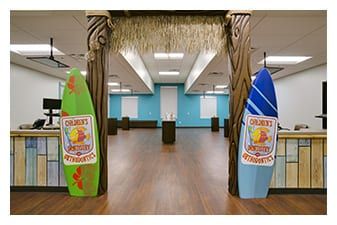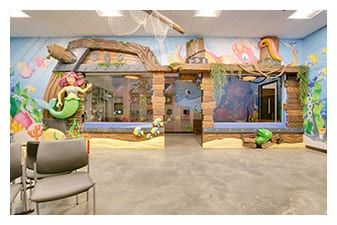Pediatric dentistry is a dental specialty focused on the prevention, diagnosis, and treatment of oral health problems in children. Pediatric dentists have specialized training that qualifies them to provide care for children’s teeth and gums as they change throughout childhood. Pediatric dentists provide comprehensive care, from preventative treatment like cleanings, fluoride varnish treatment and sealants to treatment for oral disease and injuries. A pediatric dentist will also counsel parents about a child’s nutritional and hygienic habits.
Did you know…
early childhood caries are the most common chronic disease in children living in the United States? It is far more prevalent than other common childhood illnesses, such as asthma. Furthermore, tooth decay and gum disease that begin early in life are likely to progress over time, potentially leading to a lifetime of oral complications.
Frequently Asked Questions
What ages of children do pediatric dentists treat?
A pediatric dentist will treat patients from birth through adolescence. The American Academy of Pediatric Dentistry recommends that young patients begin visiting a pediatric dentist no later than the first birthday when most children already have a first tooth. Children will continue to visit the dentist periodically throughout childhood to prevent tooth decay and gum disease.
What type of training does a pediatric dentist have?
A pediatric dentist has the same credentials as a family dentist with 2-3 additional years of training specifically in the oral treatment of babies, children, teens, and children with special needs. They are trained to understand not only the dental needs of a child but also the psychological and emotional needs as well.
How can I make a pediatric dental appointment?
Our staff is happy to assist you through the process of making the first appointment for your child. Simply call our office to speak with one of our helpful staff members and schedule your child’s visit. We aim to make your child’s experience as comfortable as possible.

























